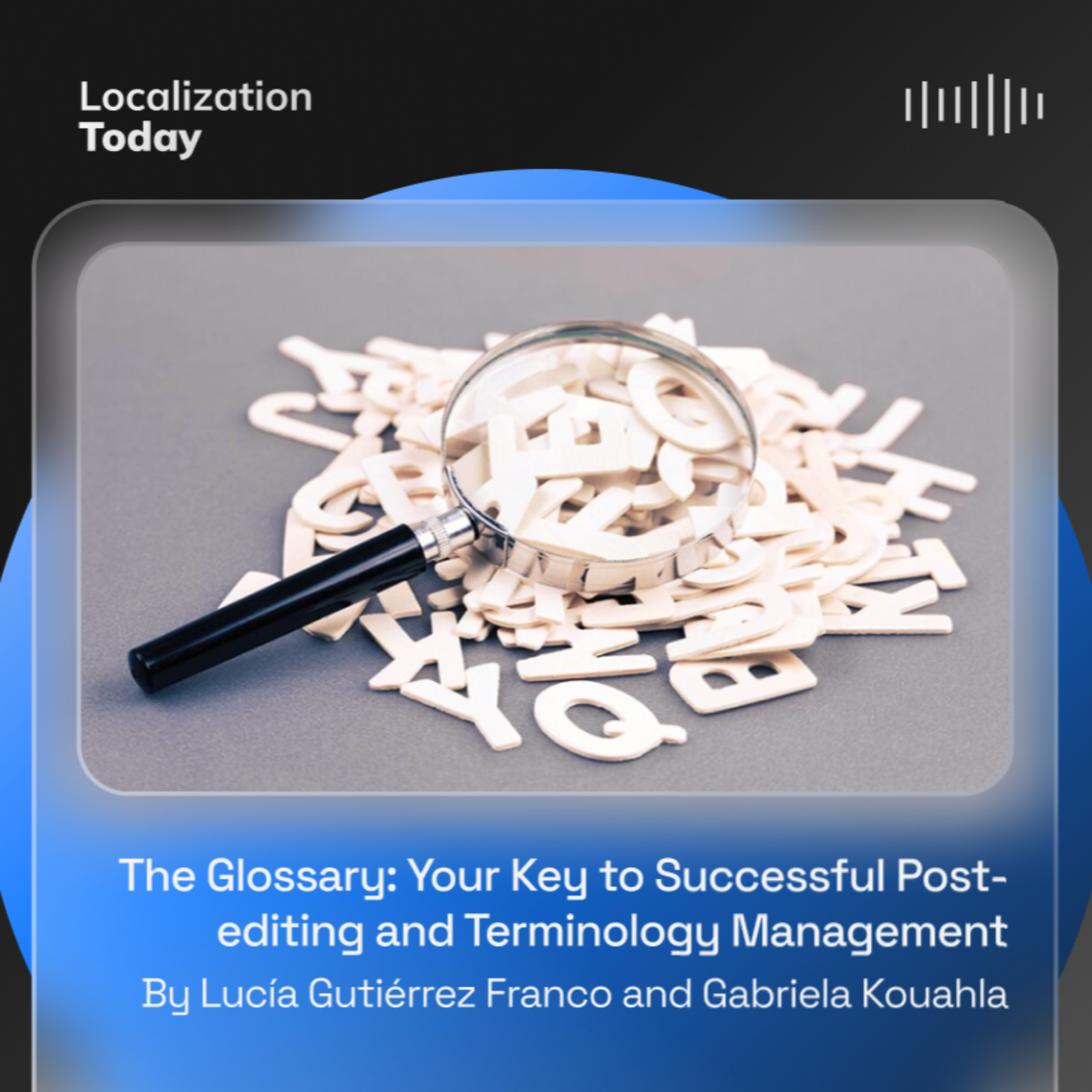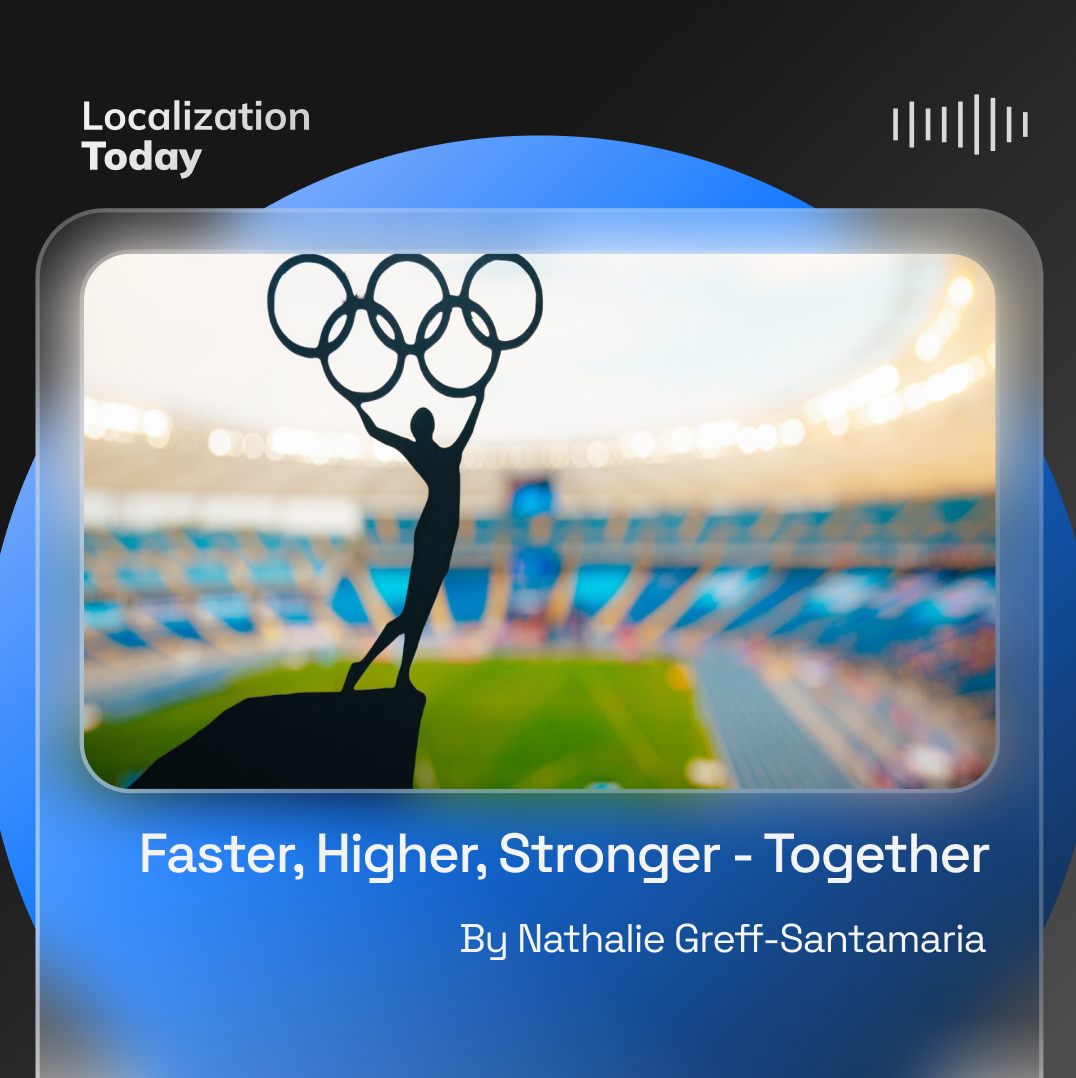Episode Transcript
[00:00:00] Crafting Fictional Languages for Immersive Game Worlds by Tamara Turjak throughout history, auxiliary languages have emerged to facilitate global communication. Like Esperanto or Bridge, related linguistic groups such as inter Slavic fictional languages serve a different purpose.
[00:00:18] They are intertwined with building believable fantasy or science fiction worlds in literature, film, and television.
[00:00:25] From Quenya and Sindarin spoken by Tolkien's elves to Klingon created for Star Trek, or Valyrian and Dothraki crafted for Game of Thrones, constructed languages help forge a sense of realism and cultural depth within imagined realms.
[00:00:39] Video games are no exception to this trend. Many titles employ unique fictional languages to enhance their world building.
[00:00:46] While not a true language per se, the simlish gibberish of the Sims exemplifies this phenomenon.
[00:00:53] The action role playing game Elder Scrolls v Skyrim features the guttural Dovazole dragon language used both for communication and to cast magic using words of power.
[00:01:03] The whimsical Planco language brings charm to the theme parks and zoos of Planet Coaster and Planet Zoo. The rationale behind fictional narrative designers, level designers, visual artists, and animators meticulously craft beautiful, immersive, and believable game worlds.
[00:01:21] The soundscape and the original language complement this effort, enhancing the player's sense of immersion.
[00:01:27] In Planet Coaster, the adorable language spoken by the theme park visitors perfectly aligns with the charming character design to create a sense of endearment in the player toward the characters in the game.
[00:01:38] One of the primary motivations for creating a unique language is to transport players into a fully realized alternate universe distinct from our own.
[00:01:47] A well crafted fictional language disassociates the game world from any existing culture, allowing the narrative to feel universally resonant in removing recognizable dialogue. As with A Tale of Two Sons, the emotional content of the narrative becomes more accessible.
[00:02:05] Regardless of a player's background, they can experience the profoundly human content of the game world in the same way as any other player.
[00:02:13] Fictional languages also give unique insights into the in world culture that created them.
[00:02:18] In the dystopian novel 1984, for example, George Orwell introduces Newspeak, a controlled language with simplified grammar and limited vocabulary. Based on English, Newspeak was created to limit critical thinking and convey the ideology of the novel's totalitarian superstate. Serving as an imaginary linguistic and sociological experiment.
[00:02:40] Beyond world building, these languages can also foster communities, gathering enthusiasts to decipher, document, learn, teach, and use them beyond the screen or book pages.
[00:02:52] Fans of the adventure puzzle games Myst and Riven can refer to resources by the D&I linguistic Fellowship to learn the D and I language used in game primarily in written form.
[00:03:02] The Thuhem community, created by Skyrim players, launched a pen pal program for speakers of the Dovazzle to practice the language.
[00:03:10] The community formed around the Nausics language of Avatar has started a podcast with full episodes recorded in this constructed language.
[00:03:18] If world building or the creation of community is not enough motivation, fictional languages can also be utilized to help maintain player engagement.
[00:03:28] Studies on the effects of repetitive audio stimuli on cognitive fatigue and attention, for example Gomez et al. 2000 show that repetitive dialogue lines can eventually lead to audio fatigue, disengaging players and diminishing their focus.
[00:03:45] The introduction of unfamiliar speech patterns can counteract this effect, sustaining player immersion and attention during gameplay.
[00:03:53] Approaches to Language Construction when embarking on the creation of a video game, language developers must determine the appropriate level of complexity based on the game's needs.
[00:04:04] Some games may warrant the development of a fully fledged constructed language complete with its own grammar, syntax, and writing system, such as Dovahzol in the Elder Scrolls Skyrim.
[00:04:16] This path demands significantly more effort but can yield a richer, more authentic feeling language, which is deeply rooted in the game world and its speakers.
[00:04:25] Alternatively, a substitution language in which invented words replace their real world counterparts while maintaining the original language's grammar and structure can be an efficient solution.
[00:04:36] This latter approach was employed for Planet Coaster, allowing for a streamlined creation process without the added intricacy of devising new grammar rules.
[00:04:46] Although the pronunciation rules do not strictly match those of English, the language uses the basic Latin Alphabet.
[00:04:53] This approach also made it possible for the translation to be initially achieved by using a simple lookup macro, even though the actual words would be incomprehensible. Video game developer Frontier Development's sound design team still wanted to convey useful information to the players of Planet Coaster, so considerable thought went into creating the vocabulary.
[00:05:13] Cheerful words like whippy, happy, gal good, and plug great convey positivity through the use of sprightly vowels and syllabic dexterity, allowing players to sense their guests enjoyment and approval of the park.
[00:05:25] Conversely, negative sentiment is expressed through the use of fluidity, disrupting glottal stops and velar plosives in words such as grrk sick, tekra's terrible, and hanksafir.
[00:05:36] The team carefully considered frequently occurring keywords such as aliama, roller coaster, ensuring they are easily recognizable in relevant contexts.
[00:05:46] Several approaches were used when creating new words, including the onomatopoeia. The planko word reflects the sound it makes, such as woof dog, vrocar, gloop, drink, bef, bash, brunk, crash, bozampa, explode, plom, boom and donk wood Word association this creative process derives the planco equivalent of an English word from an adjacent concept or a related idea, such as luckma Credits look ma I am in the credits oh yeah it pricked me Tentafu octopus It has tentacles.
[00:06:21] Maybe yes, maybe no Dazzit rumor it sounds like does it shut mute a contraction of shut up and flip tuft it can be fluffy Similarity to an existing language this approach derives the planco word by taking the word in English or maybe in a Romance language or Welsh and modifying it, for example Day o' day, Lenoa, lion, sue, the South, Krak a Kraken, Affarak, Africa, and Mumenomaum.
[00:06:48] Some words were inspired by team members personal experiences, such as dungaree, an affectionate nod to fellow game developer Alexander Motolos fashion droost train for James's train loving father Andrew Stant by Ga cow James called cows big cows as a toddler and Gathortus Dangerous, an anagram of the formidable alien race in Elite Dangerous, the epic space simulation game also developed by Frontier Developments. Integrating the Language into the Game World Once a fictional language has been established, the next challenge lies in seamlessly integrating it into the game world.
[00:07:24] In Planet Coaster and Planet Zoo, Planco is used in all conversations between guests and staff members.
[00:07:30] After Dialog is written in English, it must be translated into Planco using the same translation management system tms, used for all other game localization tasks with a couple of custom tweaks.
[00:07:43] These lines are not subtitled, but occur as part of the theme park's ambient soundscape, which means the text files are not submitted into the game build.
[00:07:52] Recording dialogue in a constructed language is quite challenging as voice talents must be carefully guided to pronounce the made up words correctly and fluently, making them sound natural as if using their native language.
[00:08:05] Most of the dialogue in Planet Coaster and Planet Zoo was recorded with professional native British English voice talents.
[00:08:12] Additionally, the sound design team leveraged the international workforce of Frontier Developments and occasionally invited their foreign speaking colleagues to record a few lines for the game, thus broadening the range of planko accents to create a more diverse and inclusive crowd chatter.
[00:08:28] Planko is also used in jingles and advertisements played by food, drink and souvenir stalls and billboards throughout the park.
[00:08:35] These short lines are thoroughly checked by the multilingual localization team to avoid unintentional obscenities in any major language as part of their ongoing culturalization processes.
[00:08:47] A particularly creative challenge was writing songs in this constructed language, which would be played by attractions and park speakers as well as featured on the game's soundtracks for songs. The raw English to Planco translation had to be adapted for rhyming and rhythm.
[00:09:03] Maintaining English grammar and word order in Planco did not necessarily work in a song.
[00:09:09] For example, while Night and Bright rhyme perfectly in English, their Planko counterparts Noe and Petan do not.
[00:09:16] The solution to this challenge was using the theme of the song to find two key words to act as the rhyming couplet and then work backward to fill in the gaps based on the available remaining syllables in the vocal melody.
[00:09:28] For example, the couplet Bien Loud and Tajuan Kerr is used in the song for the power moves Flat Ride. The use of Planko extends beyond audio appearing on in game signs and even graffiti. Figure 1.
[00:09:41] This necessitated making the Planko dictionary easily accessible to artists, leading to the creation of a simple browser based self service translation tool connected to the most up to date term base in the tms.
[00:09:53] Maintaining and Managing the Language the building of the new language started as a simple glossary for easy single word translations done manually and later using a Visual Basic for applications VBA macro in a spreadsheet.
[00:10:07] As a constructed language grows in scope and complexity, robust systems become necessary for effective management and implementation.
[00:10:15] For example, the dictionary of Planco currently comprises over 12,000 unique entries.
[00:10:21] The glossary itself is managed and maintained in polyglot software developed by and for the constructed language conlang community. Ideal for managing invented tongues, it enables the creation of regular expressions to define the patterns for plural nouns, verb conjugations, and comparative and superlative adjectives.
[00:10:41] The actual translation of dialogue lines happens using automated translation fragment assembly in the tms.
[00:10:48] When considering a constructed language's vocabulary and grammar, even for a simple substitution language, several questions must be addressed.
[00:10:56] Do we want to replicate English irregularities or keep things simple and regular for our new language?
[00:11:03] For the sake of simplicity, Planco is a fairly regular language maintaining only a limited number of irregularities from English, such as m is r and with were.
[00:11:14] The rest of the verbs are regular in the present and past tense.
[00:11:17] How do we define rules to generate derived forms that roll off the tongue for voice talents?
[00:11:23] The plural form of nouns is created by adding an I to the end of the original word, such as real film versus reali films.
[00:11:31] But what if the singular form already ends on I?
[00:11:34] Then we form the plural by adding e. For example, Vumi video becomes vumi I videos.
[00:11:40] How and where can we use contractions to emulate the casualization of everyday speech.
[00:11:45] A main consideration was to increase fluency and mimic how contractions happen in real world languages such as shortening das nouve du not to du no don't isar im into er I'm and meli u it is into me uits.
[00:11:58] The contractions have been added to the term base as well to aid consistent translation.
[00:12:04] To further aid fluency and believability, we're where would speakers drop letters merging sounds when sequential words end and begin with the same letter?
[00:12:12] The creator of planco would attend all sessions in the recording studio, expertly guiding voice talents and suggesting such shortcuts while maintaining the original vision and accuracy of the language.
[00:12:24] How do we handle words like works which can be either a noun or verb in automated translation?
[00:12:30] Both versions have been added to the term base, clearly indicating the part of speech.
[00:12:35] This is one thing that the human reviewer pays attention to while sanity checking the automated translation from English to Planco, ensuring that the correct form is picked.
[00:12:45] Is it desirable to have different planko words for English homonyms?
[00:12:49] While it does complicate fragment assembly in the tms, the decision was to create unique planko words for the different meanings of right for example Rieti correct less than privilege, rama, not left and pav exactly.
[00:13:03] This is also clearly indicated in the term base for each entry. Correct word use is verified during human review.
[00:13:10] The answers to these questions greatly impact the translation pipeline.
[00:13:15] The more rule based and straightforward the language, the easier it is to automate translation using a macro or a TMS feature like fragment assembly.
[00:13:23] PlanCo is also made available to the wider public on the Planet Coaster and Planet Zoo websites, regularly updated via Application Programming Interface API, allowing the player community to actively engage with the language.
[00:13:37] Conclusion in the ever evolving landscape of video game development, the art of crafting fictional languages remains a powerful tool for world building and player immersion.
[00:13:48] As developers continue to push the boundaries of interactive storytelling, the creation of unique, fully realized tongues will undoubtedly play a vital role in transporting players to realms limited only by the imagination.
[00:14:01] It proves that even at the dawn of the age of artificial intelligence AI, there is no substitute for the human spark.
[00:14:07] This article was written by Tamara Turjak, Head of Localization at Frontier Developments, leading the team responsible for defining the narrative and localization strategy pipelines and execution across all games, marketing and studio activity to deliver and support all products globally.
[00:14:25] Originally published in Multilingual Magazine issue 240, 6-20-25.


